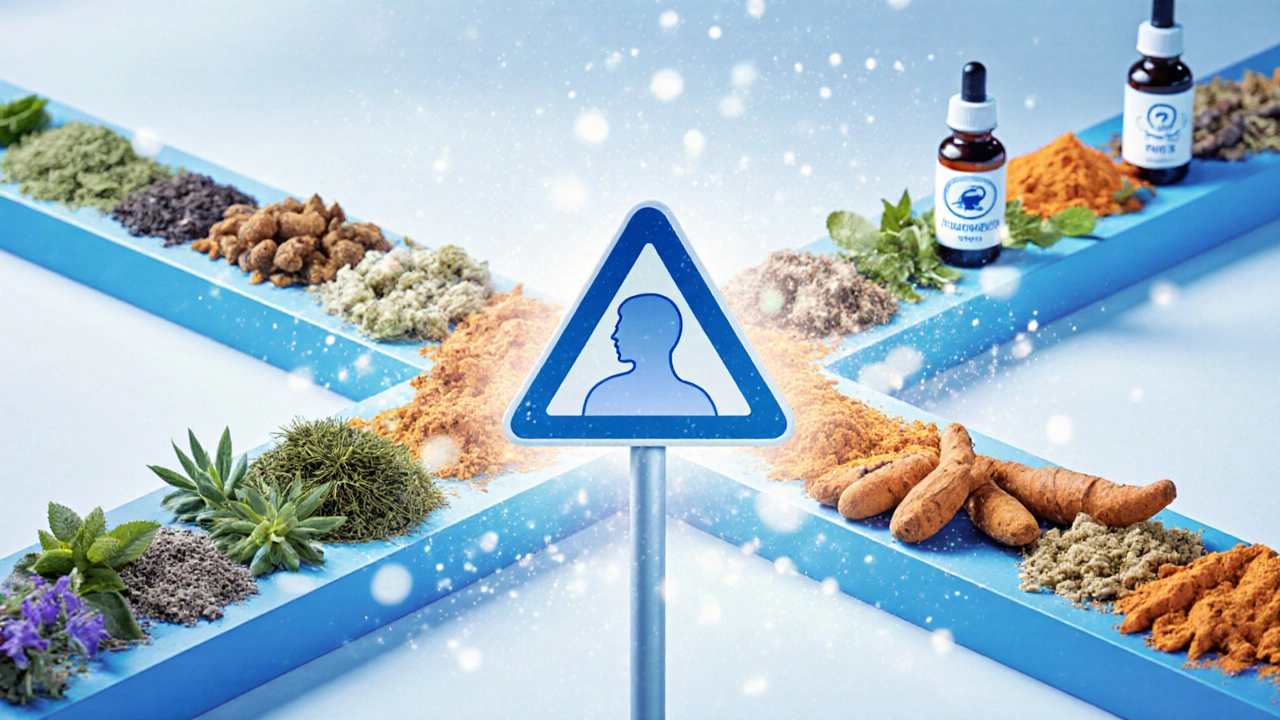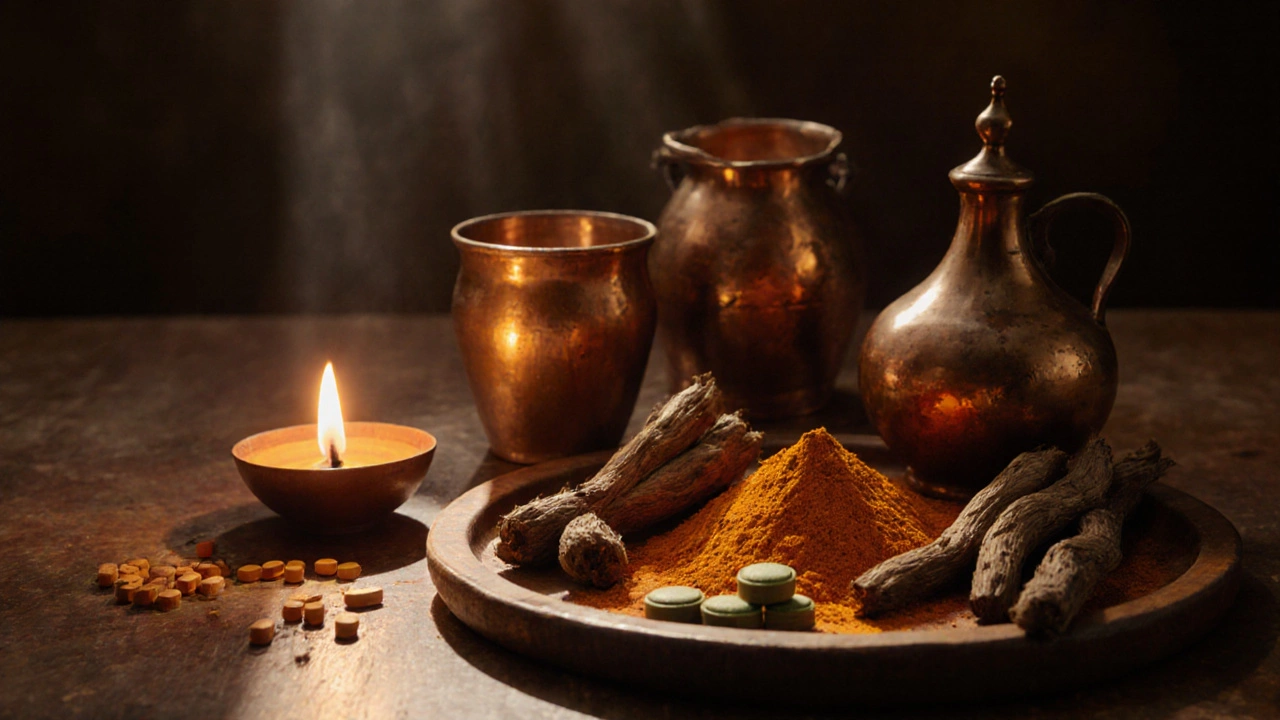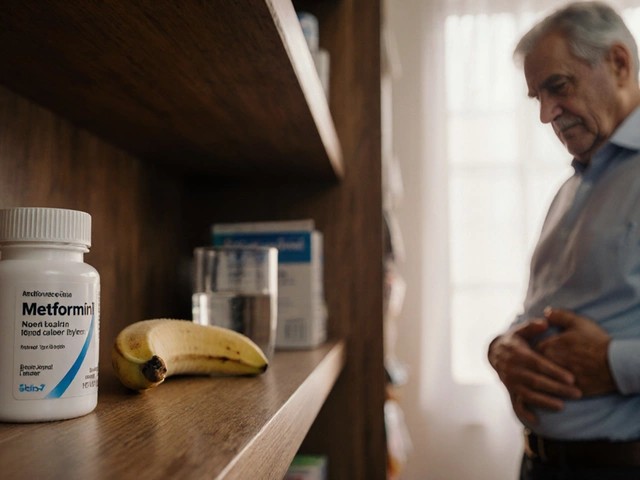Many people in the UK and beyond turn to Ayurvedic and homeopathic medicines when conventional treatments don’t fully help - whether it’s for chronic fatigue, digestive issues, anxiety, or lingering pain. But a common question pops up: Ayurvedic medicine and homeopathy both promise gentle healing. Can you safely take them together?
What Are Ayurvedic and Homeopathic Medicines Really?
Ayurvedic medicine comes from ancient India and uses herbs, minerals, oils, and lifestyle changes to balance the body’s three doshas - Vata, Pitta, and Kapha. Common remedies include ashwagandha for stress, turmeric for inflammation, and triphala for digestion. These aren’t just teas or supplements - they’re complex formulations often tailored to your body type and current imbalance.
Homeopathy, developed in Germany over 200 years ago, works on the principle of ‘like cures like.’ It uses highly diluted substances - sometimes so diluted that no molecules of the original remain - to trigger the body’s self-healing response. Remedies like Arnica for bruising or Nux vomica for indigestion are common. The idea isn’t to flood your system with chemicals, but to send a signal.
Both systems are non-pharmaceutical and avoid synthetic drugs. That’s why people assume they’re harmless to combine. But safety isn’t about origin - it’s about interaction.
Why People Think They Can Be Combined
You’ll hear stories from friends, online forums, or even some practitioners: ‘I took ashwagandha and Nux vomica together for months - felt great!’ These anecdotes are powerful. But they’re not proof.
People assume synergy because:
- Both are ‘natural’ - so they must be safe together
- Neither causes immediate side effects like drowsiness or stomach upset
- They target similar issues: stress, sleep, digestion, immunity
But ‘natural’ doesn’t mean ‘neutral.’ Ashwagandha can affect thyroid hormone levels. Homeopathic remedies, even in ultra-diluted form, may still influence physiological pathways through unknown mechanisms. When you layer multiple systems, you’re not just adding remedies - you’re adding variables your body has to process.
What the Research Actually Shows
There’s very little high-quality research on combining Ayurvedic and homeopathic medicines. Most studies look at each system alone. A 2021 review in the Journal of Alternative and Complementary Medicine found no direct evidence of harmful interactions between the two - but also no evidence of added benefit.
What we do know:
- Ayurvedic herbs can interfere with liver enzymes that break down drugs - including some homeopathic preparations that contain trace plant extracts
- Some Ayurvedic products contain heavy metals like lead or mercury, even in small amounts. These can accumulate over time and affect how your body responds to anything else you take
- Homeopathic remedies often use alcohol as a preservative. Mixing with herbal tinctures (common in Ayurveda) can increase total alcohol intake
A 2023 case report from a London clinic described a patient taking Brahmi (an Ayurvedic herb for memory) and Ignatia (a homeopathic remedy for grief) together. She developed unexplained dizziness and nausea. After stopping both, symptoms cleared in 72 hours. No other cause was found.
That’s not common - but it’s not rare either.

Real Risks You Might Not Realize
Here’s where things get tricky:
1. Overlapping Effects
Both systems often aim to calm the nervous system. If you’re taking Ashwagandha (known to reduce cortisol) and Kali phosphoricum (a homeopathic remedy for mental exhaustion), you might end up too sedated. Symptoms like drowsiness, brain fog, or low blood pressure could sneak up on you.
2. Hidden Ingredients
Not all Ayurvedic products are created equal. A 2020 study by the UK’s Medicines and Healthcare products Regulatory Agency (MHRA) found that 1 in 5 Ayurvedic supplements sold online contained undeclared pharmaceuticals - including steroids or painkillers. If you’re also taking homeopathic remedies, you might unknowingly be overdosing on hidden ingredients.
3. Timing and Dosage Confusion
Ayurveda recommends taking herbs with meals or on empty stomach depending on the dosha. Homeopathy says to take remedies 15-30 minutes before or after eating - and never with mint, coffee, or strong flavors. Mixing both means you’re juggling conflicting rules. One wrong timing can make either remedy less effective.
When It Might Be Okay (With Caution)
It’s not a hard no - but it’s not a free pass either.
Some integrative practitioners in London and Brighton do combine both systems - but only under strict conditions:
- You’re under the care of one qualified practitioner who knows both systems
- There’s a clear reason for using both - not just ‘trying everything’
- Each remedy is prescribed for a different, specific purpose (e.g., Ashwagandha for adrenal fatigue, Chamomilla for teething pain in a child)
- You’re monitored for changes in sleep, energy, digestion, or mood over 2-4 weeks
For example: A 52-year-old woman with post-menopausal anxiety was prescribed Ashwagandha for hormonal balance and a homeopathic remedy, Lachesis, for hot flashes. Her practitioner spaced them 2 hours apart and asked her to track symptoms daily. After six weeks, her anxiety dropped 40% without side effects.
But that worked because it was controlled - not random.

What You Should Do Instead
If you’re considering both, here’s what actually helps:
- Choose one system to start with. Give it 4-6 weeks. See what changes.
- Keep a simple journal: energy levels, sleep quality, digestion, mood. No fancy apps - just pen and paper.
- If you don’t see improvement, talk to a qualified Ayurvedic or homeopathic practitioner - not a shop assistant at a health store.
- If you want to add the second system, wait at least 2 weeks after starting the first. Then introduce one new remedy at a time.
- Always tell your GP. Even if they’re skeptical, they need to know what you’re taking to avoid dangerous interactions with prescription meds.
Red Flags to Watch For
Stop both immediately and consult a professional if you notice:
- Sudden dizziness or lightheadedness
- Unexplained rashes or skin flushing
- Worsening of original symptoms
- Changes in heart rate or blood pressure
- Feeling ‘overstimulated’ or unusually tired
These aren’t ‘healing crises’ - they’re warning signs. In alternative medicine, more isn’t better. Sometimes, less is the only thing that works.
Bottom Line: Proceed With Clarity, Not Curiosity
Can you take Ayurvedic and homeopathic medicines together? Technically, yes - but only if you treat them like medicine, not magic.
Neither system is risk-free. Neither is proven to work better when combined. And both can interact with each other - and with your body - in ways you can’t predict.
The safest path? Pick one. Stick with it. Track results. Talk to someone who understands both. And never assume ‘natural’ means ‘safe together.’
If you’re serious about healing, your goal isn’t to stack remedies. It’s to understand your body - and give it what it actually needs.
Can I take Ayurvedic and homeopathic medicines together if I’m on prescription drugs?
No - not without consulting your doctor and a qualified integrative practitioner. Ayurvedic herbs like Brahmi, Guggul, or Turmeric can interfere with blood thinners, diabetes meds, or thyroid drugs. Homeopathic remedies may not contain active molecules, but their alcohol base or timing can still affect absorption. Your GP needs to know everything you’re taking to avoid dangerous interactions.
Do Ayurvedic and homeopathic medicines work better together?
There’s no scientific evidence that combining them improves outcomes. Some people feel better, but that’s often due to placebo, lifestyle changes, or the natural course of their condition. Using one system well is more effective than using two poorly. Focus on consistency, not combination.
Are there any safe combinations I can try on my own?
Don’t self-prescribe combinations. Even ‘mild’ herbs like Ashwagandha or homeopathic remedies like Chamomilla can have effects. If you want to try something simple, start with one - like a single Ayurvedic herb for digestion (triphala) or one homeopathic remedy for stress (Argentum nitricum). Wait four weeks before adding anything else. Always buy from reputable sources with third-party testing.
How do I find a practitioner who understands both systems?
Look for practitioners registered with the Faculty of Homeopathy or the Ayurvedic Practitioners Association in the UK. Ask if they have experience integrating both systems and whether they work with conventional doctors. Avoid anyone who pushes multiple remedies at once or claims ‘miracle cures.’ Good practitioners ask questions, not sell products.
What should I do if I’ve already been taking both and feel unwell?
Stop both immediately. Write down everything you’ve taken - names, doses, times. Contact your GP or visit a local NHS walk-in centre. Bring your remedy bottles or labels. Don’t wait for symptoms to get worse. Your body is telling you something’s off - listen to it.





